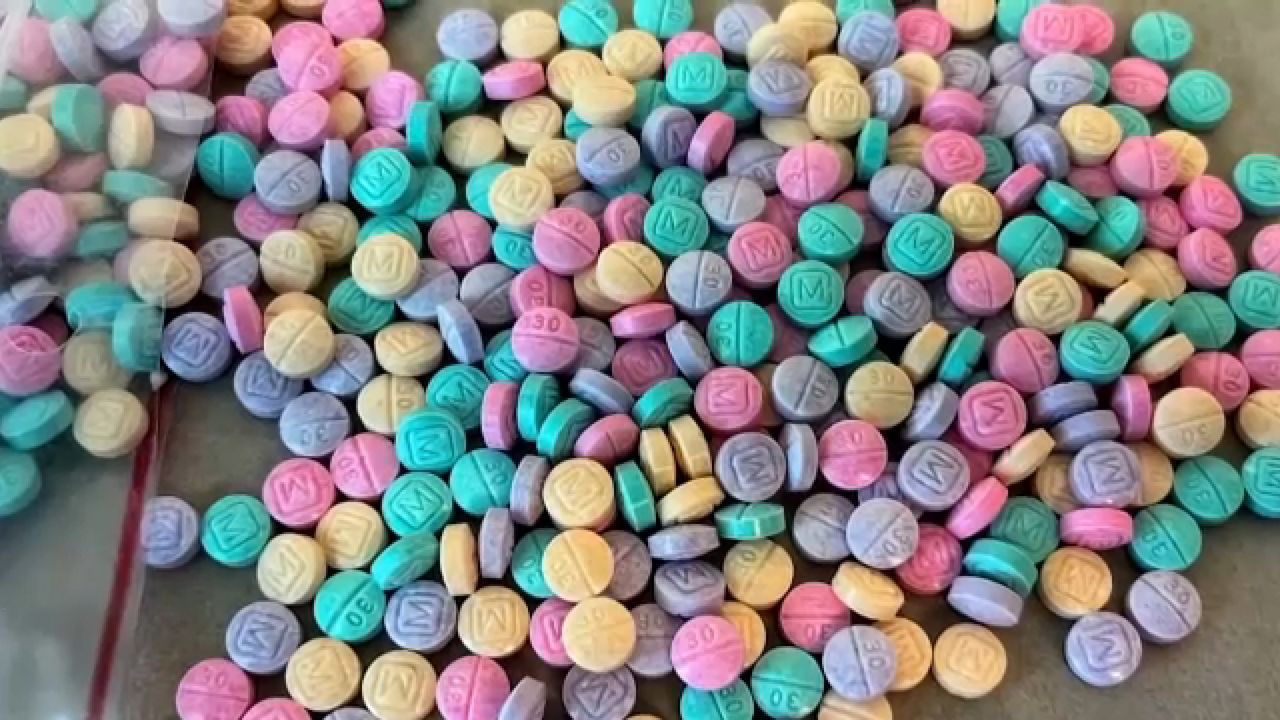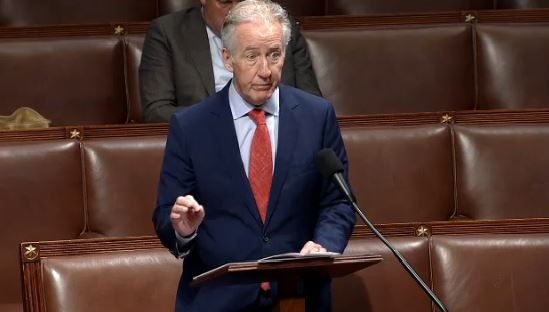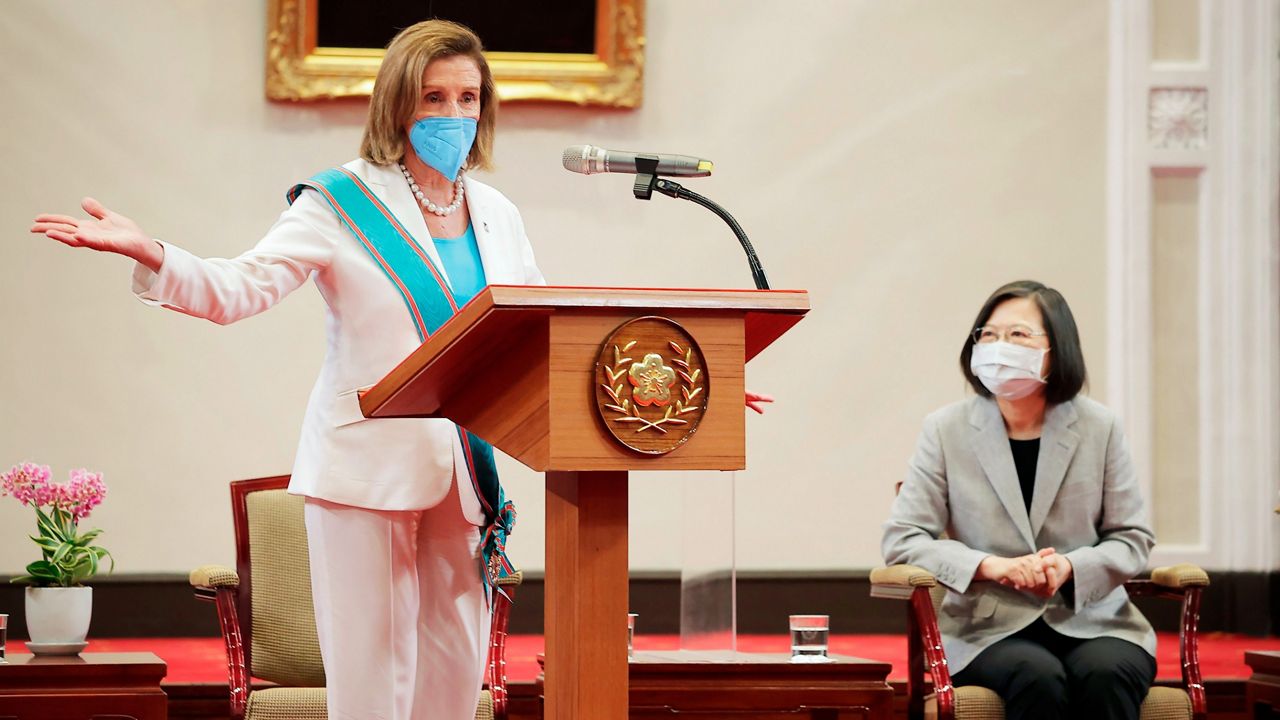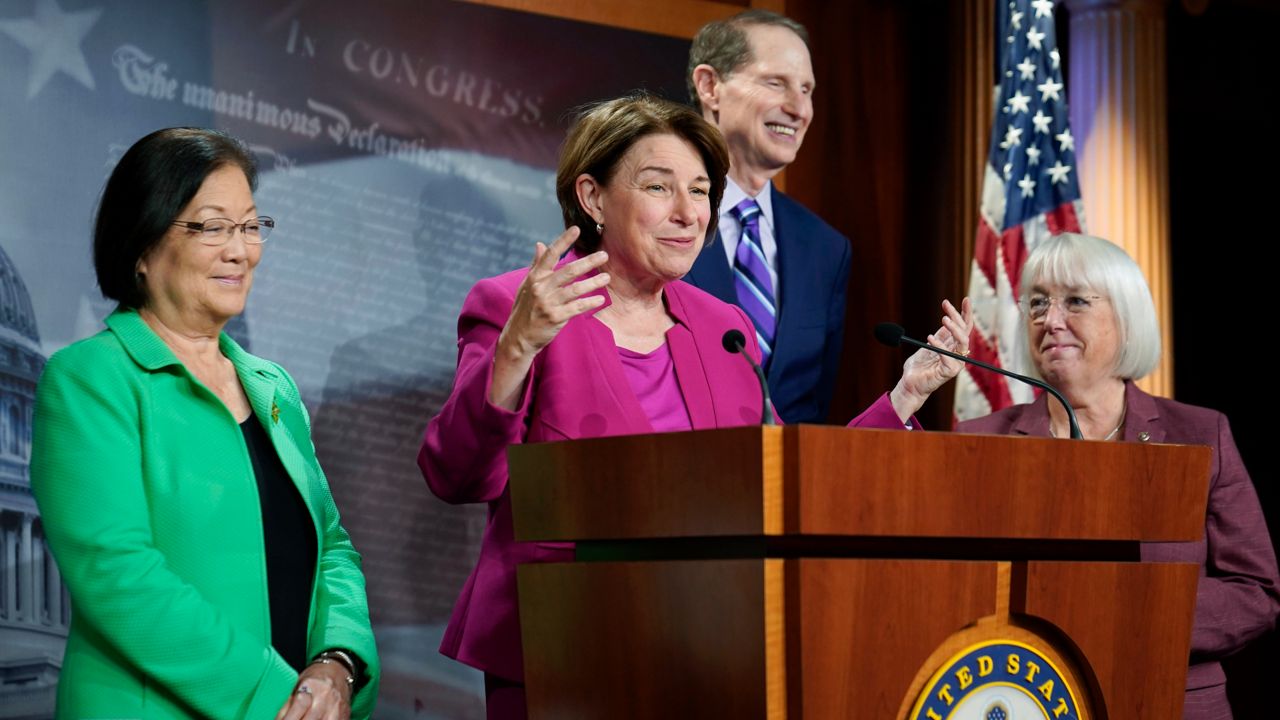More than 37 million Americans live with diabetes, which is now considered the most expensive chronic condition in the nation costing Americans more than $300 billion a year.
The cost for a 40-day supply of insulin nearly doubled between 2012 to 2016, to $666 from $344. That price hike has made capping insulin prices a hot topic on Capitol Hill. What is unclear, is whether the Senate will pass its own legislation on the issue or vote on the measure passed in the House in late March. Last month, a House bill to limit the cost of insulin to $35 a month for most Americans was introduced and voted on.
"It was stunning to me that the Republicans voted against capping the cost of insulin," said Rep. Jim McGovern (D-Mass.) who was among the 232 House lawmakers to vote for the cap. With 193 lawmakers voting no, the bill passed on March 31. Every Democrat who voted on the measure was in favor of the legislation which also garnered support from 12 House Republicans. "I mean, I've got parents who have come to see me whose children have diabetes who are worried about the ever-increasing cost of insulin. It's been around for 100 years, for goodness sake and you know, the only reason why prices go up is because these pharmaceutical companies can get away with it. So we got to provide people the security and we got to cap it."
Laura Ricci's son, Dominic, was diagnosed with Type 1 diabetes when he was 8. Now, he's 23 and she worries that at some point in his life, he won't be able to cover the cost of his insulin. She feels fortunate that up to this point Dominic has been either insured or on state Medicaid to help offset the cost of his insulin. She said that many other parents haven't been as lucky. About 28,000 people have become members of the Facebook group she started called “Parents of Type 1 Diabetics."
“Alex from Minnesota, he didn't tell his mother that he couldn't afford insulin," Ricci said. "He was making $40,000 a year in his job and he needed to pay his rent. He was one day from getting paid and he didn't go to his mother and say, 'Hey, you know, I can't afford this. Can you help me out?' They found him dead at home the next day."
She said that after years of advocacy, she's glad to see that lawmakers are finally talking about the issue and trying to come up with a solution.
"People are knocking at their doors, speaking up and talking to their congressmen and senators," Ricci said. "We've had rallies on the steps of Eli Lilly. Alex's mother, Nicole in Minnesota is a big advocate."
But even among advocates, there is skepticism if the bill that passed in the House could get enough votes to pass in the Senate. The legislation would need at least 10 Republican votes to sidestep a filibuster.
Republican Senator Susan Collins of Maine is working with three other lawmakers on a different version of the proposal.
Senator Jeanne Shaheen of New Hampshire is serving as the lead Democrat working on the draft for the Senate side, Collins is the lead Republican working on the bill. Rep. Diana DeGette (D-Colo.) and Tom Reed (R- N.Y.) are also working with Collins and Shaheen on the bill. The proposal is based on legislation that was first introduced in 2019 on the same issue.
Their legislation would incentivize manufacturers to roll back price hikes. Some health-care providers hope that with bipartisan support, a new bill might be more likely to win Senate approval.
"I'm very hopeful, because there's been a lot of momentum for many years and this has been many years coming. I think the Senate, I'm hopeful again, that they will see some sense and pass the bill...but it's a start and a start is always good. It's like a small chink in the armor" said Dr. Samir Malkani from the UMass Diabetes Center for Excellence. Malkani says that the Diabetes Center has about 20,000 patient visits each year and take care of approximately 9,000 people with diabetes.
When asked about why it may have taken this long for legislation on the issue to gain traction," Malkani said, "So there's always something that grabs the public attention more than drug prices, like COVID."
Collins and Shaheen are asking other senators and interested stakeholder to reach out to them with any suggestions they might have for their proposal by April 20.
Malkani added that there are a few other factors that currently contribute to the rising cost of insulin that will still need to be addressed at some point.
"So there's several forces at play," Malkani said. "One is that we've got a free-market economy, which is a good thing, you know. It allows people to set whatever prices they want, but in the drug market, competition is not so easy, because you have the FDA that tells a drug company, whether you can sell a drug or not. So that's a thing, it's not truly a free market, there is some kind of a monopoly because you have to go to the FDA and get your drug approved."










